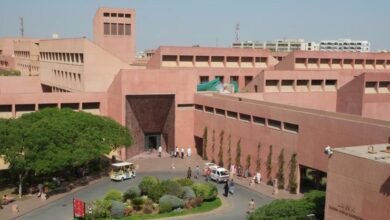Pakistani experts discover possible cure for leukemia
Pakistani experts, in a joint effort with British medical experts, have discovered a treatment that will make it possible to treat incurable blood cancer patients.

According to a report released by the Leukemia Research Foundation in Pakistan, one person in the world suffers from leukemia every three minutes, while one out of every three patients with leukemia suffers from this type of blood cancer. However, Pakistani experts, in a joint effort with British medical experts, have discovered a treatment that will make it possible to treat incurable blood cancer patients
Leukemia is one of the three major types of blood cancer, while most cases of leukemia, including philadelphia-positive (acute lymphoblastic leukemia) ALL, are treatable, while a quarter of patients with the disease are incurable because of increased resistance to their disease. Acute lymphoblastic leukemia, as the name implies, is a cancer of the blood called leukemia, and since this cancer is found in the lymphoblast and its own The incidence is acute, so it is called lymphoblastic in the name of this epithelium
Also read
Corona Virus is not tired even after two years, a new variant has arrived
Not all Pakistani doctors collect fees, some are like Inam Paul
Experts at the Aga Khan University Center for Regenerative Medicine (CRM), a leading Pakistani hospital, and Cardiff University in the UK have identified a chemical reaction in Neoplasia magazine that has been shown to be effective in stopping the growth of glycemic cells. Neoplasia is a type of abnormal and excessive growth of neoplasm tissue
The process by which neoplasms form or produce neoplasia is called neoplasia. Neoplasms do not develop with normal surrounding tissue, and continue to grow abnormally, even if the original stimulus is removed. Even so, owning one is still beyond the reach of the average person
During his career, Dr. Afsar Mian, an assistant professor at CRM, has explored many ways in which cells communicate with each other, and because of his past work and experience, he has teamed up with Professor Oliver Wattman of Cardiff University in the UK. Initiate an investigation
Dr. Afsar Mian, Assistant Professor, CRM, says that the cells of our body communicate with each other using chemical signals using chemical signals, which are composed of proteins or other molecules. The purpose of which is to facilitate the various functions of cells. These signals usually stop after they have reached their goal, but if these contacts do not stop and continue despite the specific time and need, they can lead to serious health problems such as cancer
“Our study found a signaling pathway that is on and not locked into untreated Philadelphia positive acute lymphoblastic leukemia, pH + ALL,” he said. Prevents one protein from contacting another, ensuring that the cell communicates as needed, and prevents unnecessary growth that can lead to cancer

